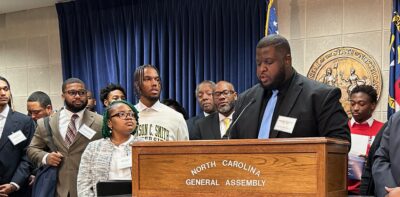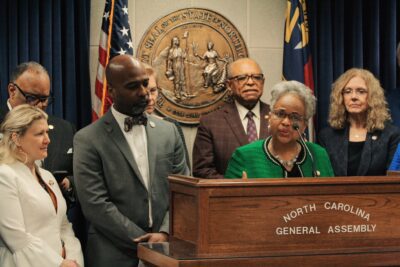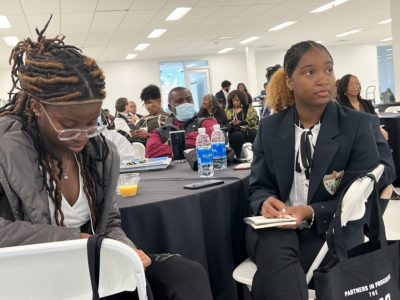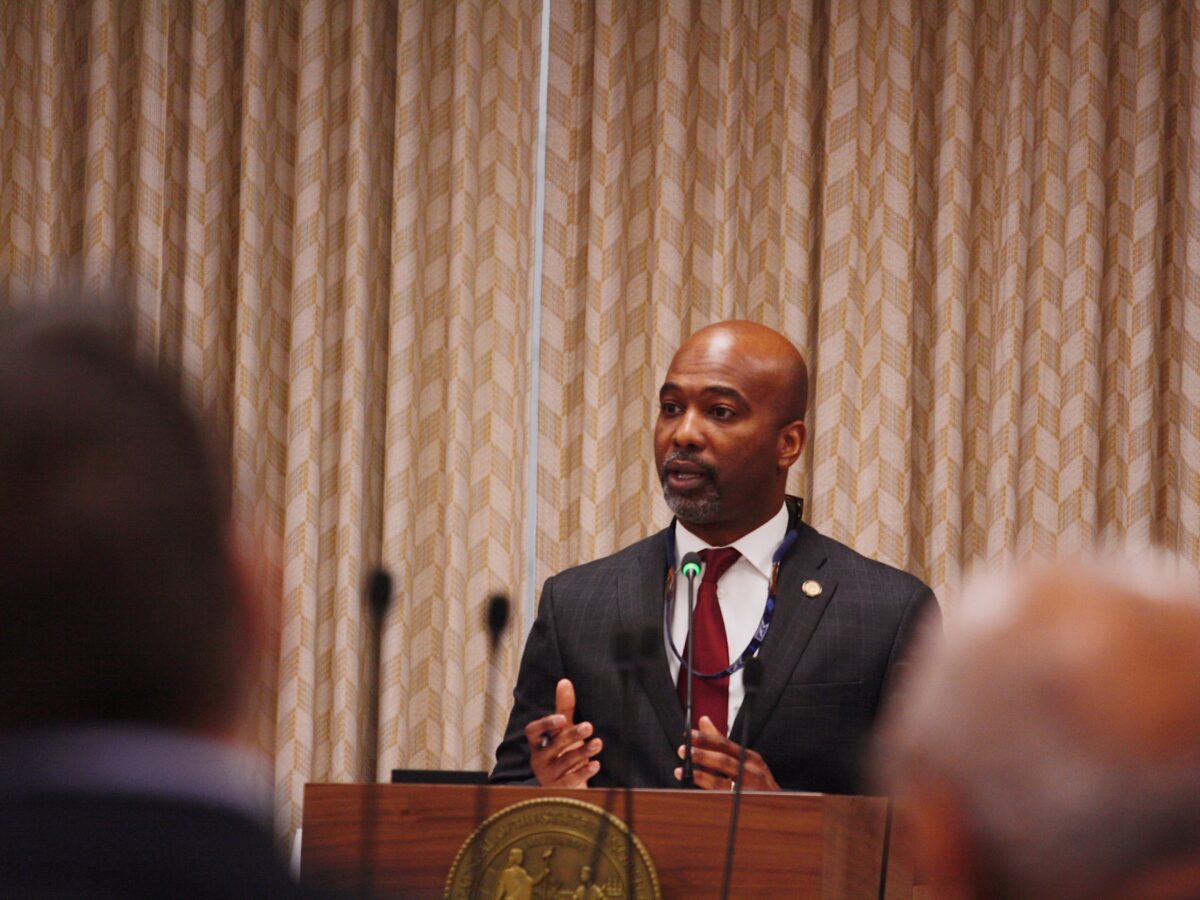

Share this story
- “We want to make sure that we get this group and members of the General Assembly on those campuses,” Co-Chair Zack Hawkins said. "Because for all the things they come to us and ask for … you have to see it."
- On April 18, the NC10 is hosting a legislative day at the General Assembly, in collaboration with the Hunt Institute and the Center for Racial Equity in Education (CREED). The caucus will meet then to hear from the NC10 legislative day delegation together.
|
|
Correction: An earlier version of this article incorrectly stated the status of St. Augustine’s accreditation. The university remains accredited while on probation for good cause. EdNC apologizes for the error.
North Carolina’s new bipartisan HBCU Caucus, which was formed this year to advocate in the legislature for historically Black colleges and universities (HBCU), met for the second time on Wednesday, discussing its legislative priorities and scheduling visits among the group to the NC10.
A bipartisan group of lawmakers announced the caucus on Feb. 8, with co-chair Sen. Gladys Robinson, D-Guilford, saying the group’s “extraordinary mission” to maximize the potential of the state’s HBCUs was a long time in the making. The caucus, modeled after the Bipartisan HBCU Caucus in the U.S. Congress, met for the first time last month to discuss organizational logistics.
On Wednesday, the other Democratic co-chair, Rep. Zack Hawkins, D-Durham, encouraged caucus members to talk with their prospective HBCUs about their legislative priorities. He also asked members to join upcoming caucus visits to HBCU campuses when they can.
“We want to make sure that we get this group and members of the General Assembly on those campuses,” Hawkins said. “Because for all the things they come to us and ask for … you have to see it. We can’t tell you what buildings look like. You have to physically touch and see it, hear the priorities, and meet the students.”
North Carolina has more four-year HBCUs than any other state in the nation and is home to the largest HBCU in the country. The NC10 includes five public colleges that are a part of the UNC System:
- Fayetteville State University.
- North Carolina A&T State University (NCA&T) in Greensboro.
- Elizabeth City State University.
- Winston-Salem State University.
- North Carolina Central University in Durham.
The NC10 also includes five private schools:
- Shaw University in Raleigh.
- St. Augustine’s University in Raleigh.
- Johnson C. Smith University in Charlotte.
- Bennett College in Greensboro.
- Livingstone College in Salisbury.
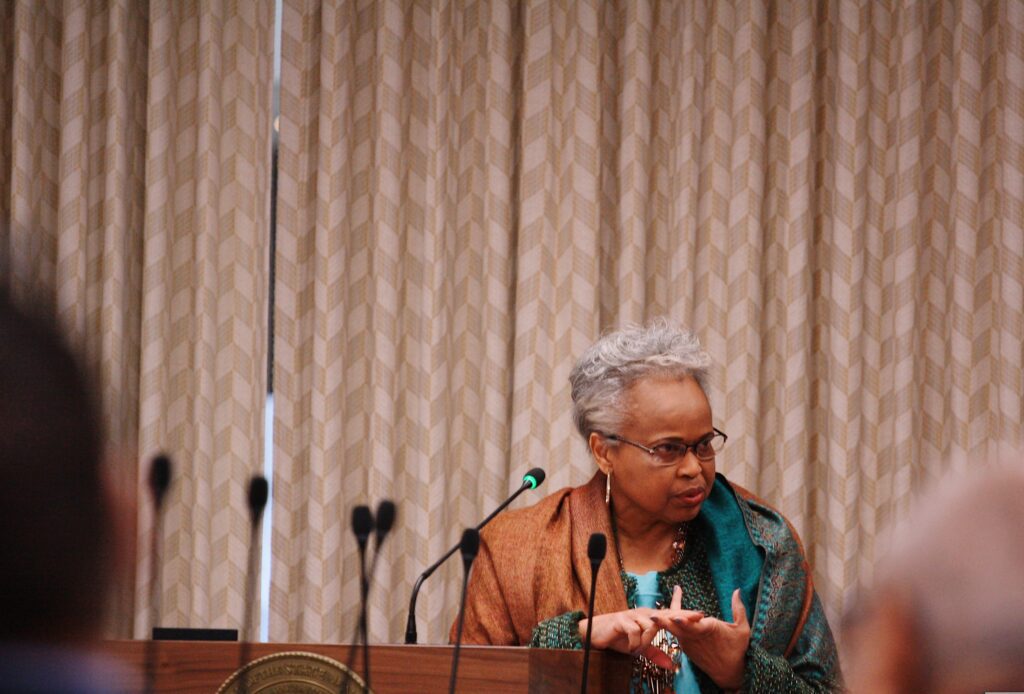

Legislative priorities
Lawmakers don’t have to be HBCU alumni to join the caucus, but both Democratic chairs are, and several other caucus members also graduated from HBCUs. Each of the chairs – including Republicans Sen. Carl Ford, R-Rowan, and Rep. Jon Hardister, R-Guilford – represents a district that includes an HBCU.
In the coming months, Robinson and Hawkins said, the caucus will continue to refine its legislative priorities. Right now, those include increasing allocations within the UNC System, funding capital improvement plans at individual schools, and developing an “HBCU Omnibus” for lawmakers. (An omnibus bill typically packages smaller appropriations bills into a single, larger bill. A UNC Omnibus bill already exists, for example.)
The caucus also will work to keep track of bills that provide funding for specific programs at HBCUs.
Last month, HBCU students visited the legislature to advocate for their schools and to stress the need for better funding. HBCUs have historically been underfunded, including in North Carolina.
Despite this, North Carolina’s HBCUs have a collective economic impact of $1.7 billion, according to a study by the Hunt Institute. They also create over 15,000 jobs in their regions, the study found.
“Historically Black colleges and universities do have significant impact in our country,” Lafayette Thompson, a student from Livingstone College, told lawmakers last month. “We do matter. And we deserve a government that hears us all.”
Gov. Roy Cooper’s budget proposal, which was released on Wednesday, includes a few specific investments in HBCUs:
- $10 million in recurring funds in each of the budget’s two years to fund NCA&T’s Premier Research Institution and $5 million non-recurring in the first year of the budget. These funds would “support new faculty and professional positions for new and existing programs” and “allow for the expansion of the diversity of NCA&T’s programs, faculty, and infrastructure.
- More than $10 million in recurring funds each of the two years to NCA&T’s Agriculture Research and Extension Match, which “builds strength in new growth areas like agricultural entrepreneurship, sustainability, and food security.”
- $10.5 million in recurring funds each of the two years toward the UNC System’s Completion Assistance Program, which provides “aid to students who are on track to graduate but in danger of dropping out due to financial shortfalls.” The funds aim to increase graduation rates at the NC10’s five public universities, along with UNC-Asheville and UNC-Pembroke.
On Wednesday, Hardister cited the possibility of expanding need-based scholarships, both in their amount and to include private schools. While such scholarships are not solely available to HBCU students, Hardister said the scholarships help many students of color.
The vast majority of HBCU students in North Carolina receive undergraduate financial aid, Julia Ahrns Hoffman, a policy analyst with the Hunt Institute, told lawmakers. On average, HBCUs also serve a larger number of students who receive federal Pell Grants, she said.
Forty-four percent of all Black four-year graduates in North Carolina graduate from an HBCU, Ahrns Hoffman said. HBCU graduates can expect total earnings of $20.7 billion in their lifetimes, she said, which is 61% more than without such college credentials.
“Increasing postsecondary attainment improves the state’s economy,” she said. “But it also makes a huge impact on the individual graduates and their families.”
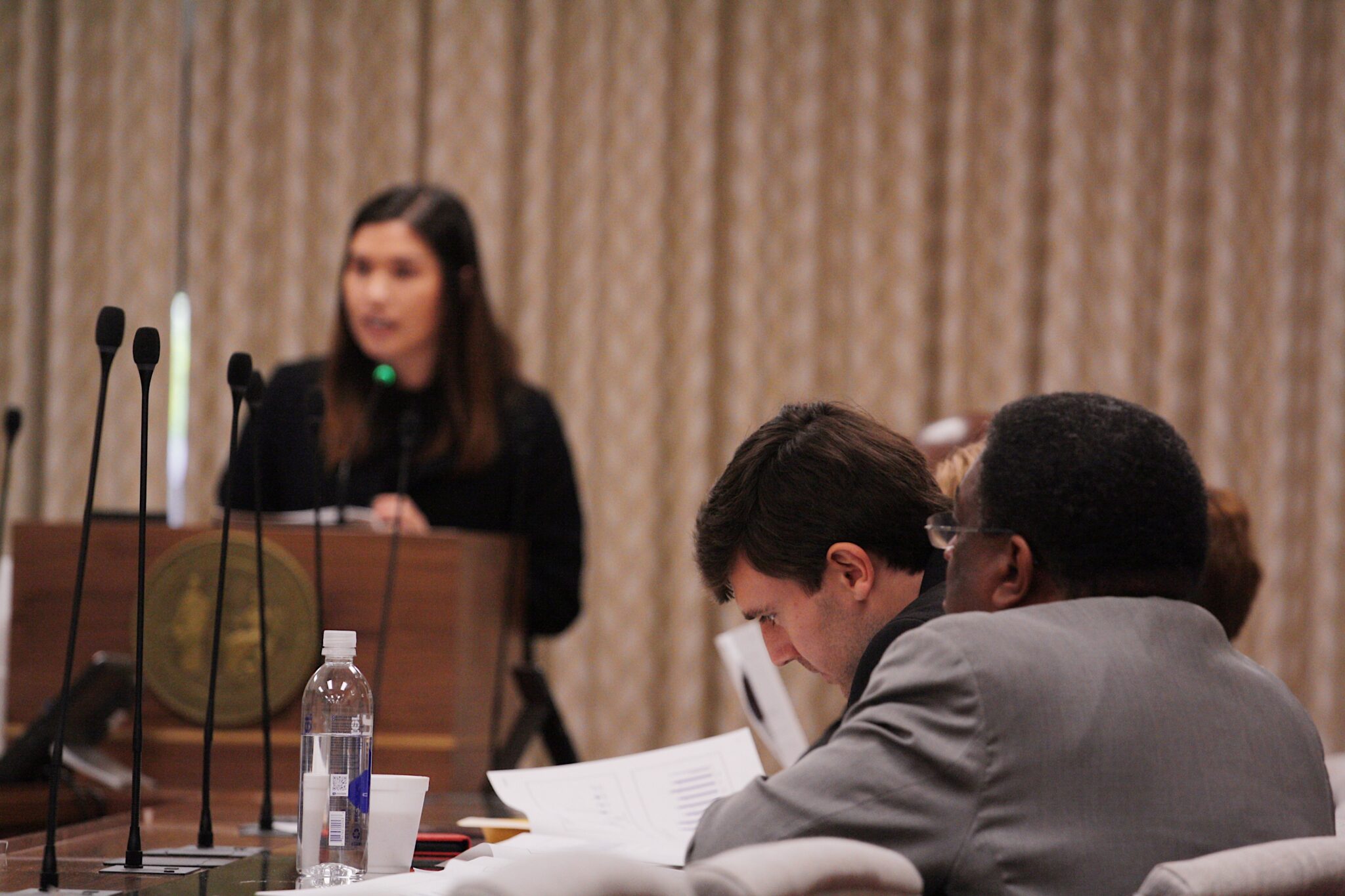

In addition to thinking about the state’s educational attainment, Hawkins said the caucus also might foster workforce collaborations between HBCUs and industries. He said he has heard of several life sciences companies recently trying to connect with HBCUs.
“Though we did not plan for that to be part of what we do in the caucus, it is an opportunity,” he said. “Just as our sister institutions are connected in those ways, we can make sure that we’re maximizing the opportunities for those campuses and students.”
Hawkins said the state’s HBCUs spend the money they receive well. He also said the colleges do a lot of good things that lawmakers don’t always know about.
The caucus will have the chance to learn about some of that work next month, Hawkins told members. On April 18, the NC10 is hosting a legislative day at the General Assembly, in collaboration with the Hunt Institute and the Center for Racial Equity in Education (CREED). That day will include one-on-one meetings with representatives, group presentations, and an evening reception.
The caucus is scheduled to meet the third Wednesday of every month. On Wednesday, the group decided to instead meet next on Tuesday, April 18, so the caucus can hear from the NC10 legislative day delegation together.
“We want to improve relationships between HBCUs and the General Assembly, and they, as a collective, generally do not usually come to this building,” Hawkins said. “This is an opportunity in collaboration with those organizations to make sure that they can.”
After visiting all 10 HBCUs, CREED issued recommendations to increase educational attainment and institutional prominence in 2021, which caucus members also received on Wednesday. Those recommendations included passing legislation to update HBCU infrastructure and enact restorative funding, among other items. You can read more about those recommendations and the initiative here.



